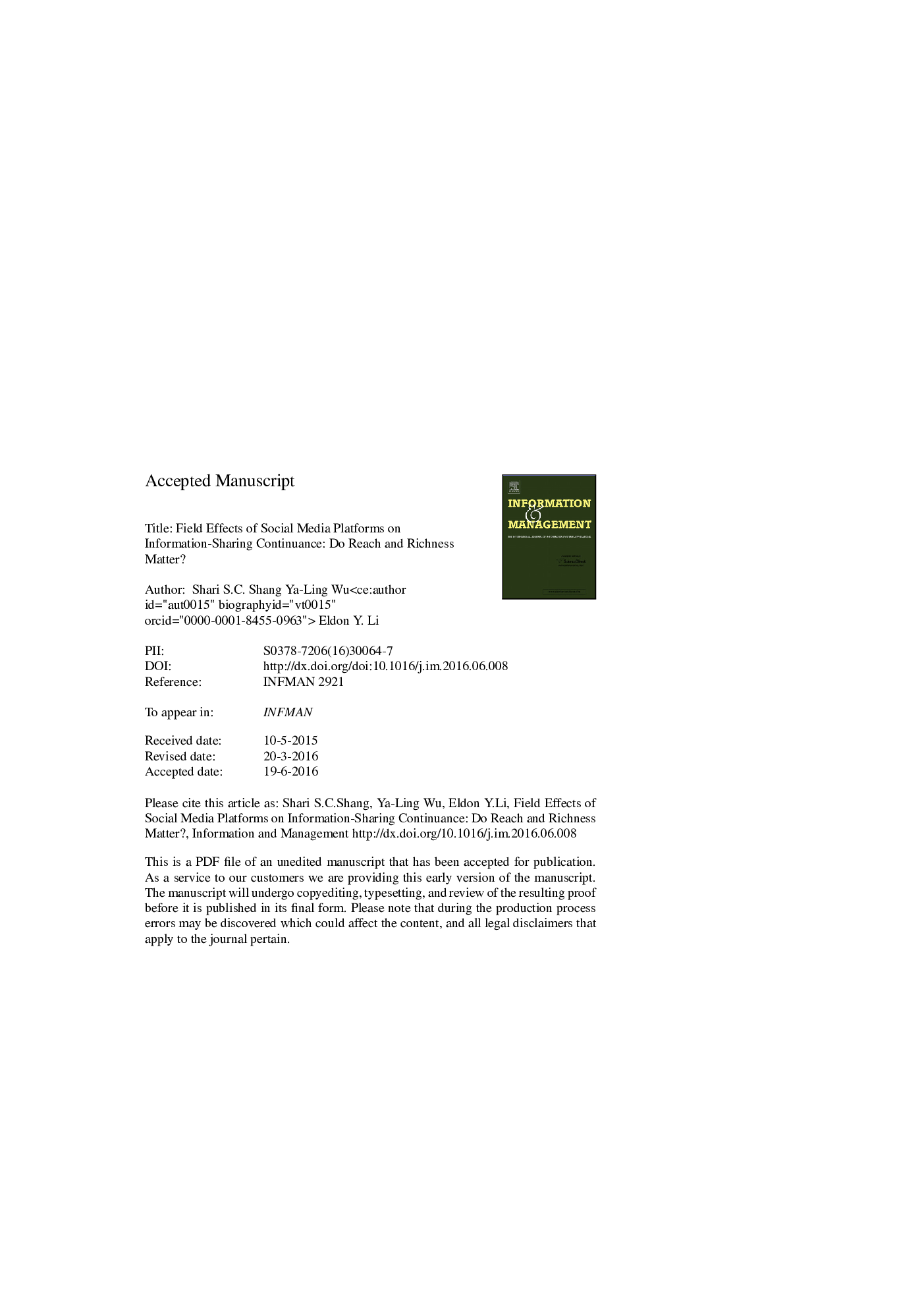| Article ID | Journal | Published Year | Pages | File Type |
|---|---|---|---|---|
| 4972649 | Information & Management | 2017 | 60 Pages |
Abstract
Based on the Field Theory, this study postulates that the cognitive processes involved in making decisions to share information on social media platforms could be dynamically affected by network features and the contextual environment. The field effect is exerted by the reach and richness of network features, which virtually form a psychological pressure on one's perception of the sharing situation. A research model is developed, in which the effects of extrinsic and intrinsic motivators on information-sharing continuance are moderated by the network features of social media platforms. A global sample from content contributors in two major social media platform contexts, experience-socialization (ES) platforms (NÂ =Â 568) and intelligence-proliferation (IP) platforms (NÂ =Â 653), were collected through the participatory research method. By using partial least-square analysis, the moderating effects of network features on cognitive-sharing processes under the two contexts were confirmed. For contributors on ES platforms, network features negatively moderate community identification and perceived enjoyment toward information sharing. By contrast, for contributors on IP platforms, network features negatively moderate the effects of perceived usefulness and altruistic tendencies on their intention to share, but self-efficacy for sharing is positively induced. The conceptualization of network features and refined knowledge about the situational and contextual effects of social media platforms are useful for further studies on social behaviors and may ultimately benefit platform providers in their attempts to promote information-sharing continuance.
Related Topics
Physical Sciences and Engineering
Computer Science
Information Systems
Authors
Shari S.C. Shang, Ya-Ling Wu, Eldon Y. Li,
